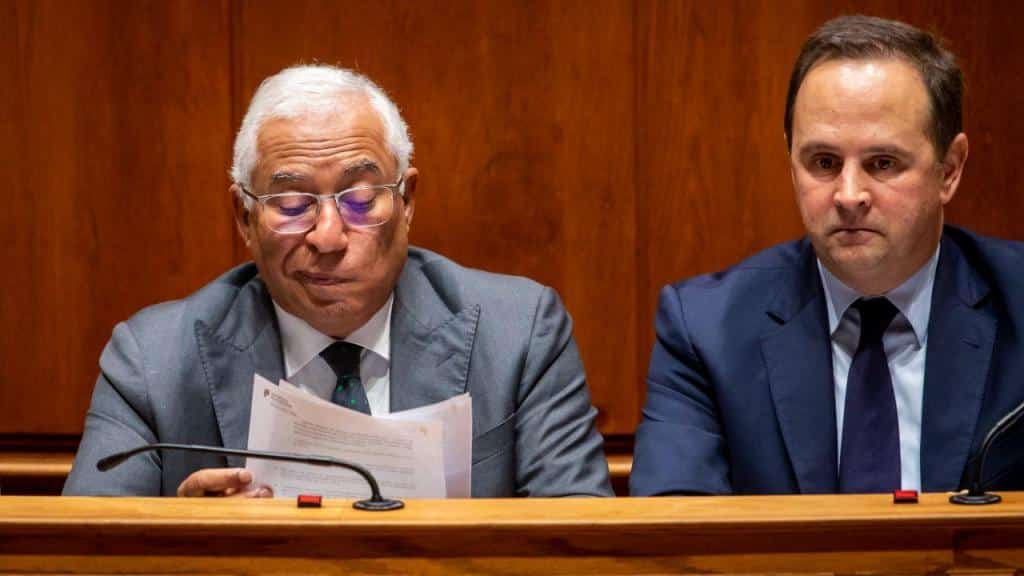Document to be ‘presented in parliament tomorrow’
The 2024 budget proposal will be submitted to parliament on tomorrow, ahead of ‘discussion in parliament’ on October 30-31.
Specialised discussions – where the articles of the proposal and all the proposed amendments and additions submitted by parties will be debated and voted on – will take place from November 23-29, culminating in the final overall vote.
To a large extent, the timetable is fairly irrelevant: the government has an absolute majority, therefore if it wants the proposal to go ahead as is, it will.
Lusa summarises “what we already know” (from various sources):
Lower economic growth
Economic growth for 2024 will be lower than the 2% forecast in April (in the Stability Programme), according to the data provided to the parties on Friday.
According to IL MP João Cotrim Figueiredo, economic growth this year should be between 2.1% and 2.2% (above the 1.8 per cent projected), but in 2024 it will be around 1.5%.
As for the budget balance, the government is now forecasting a surplus for this year of less than 1% and neutral in 2024, according to the Liberal MP.
PAN MP Inês Sousa Real also said that the inflation rate this year should be around 4.6% (compared to the 5.1% forecast).
End of sequestration
Contrary to what has happened in recent years, this year’s budget will not include any deductions, according to the finance minister.
Sequestration is a budgetary management tool that has allowed the Ministry of Finance to withhold (subject to its prior authorisation) part of the budget appropriations of bodies and other ministries. In 2023 they totalled €1.242 billion.
Reducing public debt
The government has focussed its discourse on the need to reduce public debt, with the aim of removing Portugal from the group of the most indebted European countries.
The forecast is that the ratio of public debt to Gross Domestic Product (GDP) will fall from 112.4% in 2022 to 106.1% this year, according to data sent to Brussels in the Excessive Deficit Procedure, released at the end of September, with the figure falling below the 107.5% forecast in the Stability Programme – which points to a further drop to 103.0% of GDP in 2024.
Personal Income Tax cuts
The Stability Programme points to a reduction in personal income tax of around €2.011 billion between 2023 and 2027, with the document forecasting a €400 million reduction in the tax burden in 2024 – along with other measures.
The document reinforcing the income agreement reiterates the maintenance of the reduction in taxation but without going into detail about how this reduction will be achieved, whether through a reduction in rates and/or changes in bracket limits or another solution.
IRS Jovem (income tax for young people)
The 2024 budget will bring changes to the Youth Personal Income Tax (IRS Jovem), with the new measure stipulating that young people will not pay any income tax in their first year of work.
In the second year, they pay tax on 25% of their income.
In the following two years, they will pay tax on 50% of their income, while in the fifth year, the exemption will be 25%.
At the same time, the ceilings for the benefit will be increased each year, as provided for in the income agreement.
In the model currently in force, there is a 50% exemption in the first year; 40% in the second; 30% in the third and fourth years; and 20% in the fifth and final year of the measure.
Minimum wage maintains IRS exemption
Workers receiving the national minimum wage will continue to be exempt from personal income tax in 2024.
The guarantee that the minimum wage will continue to ‘coincide’ with the so-called existence minimum was given by the government, which will imply a change to the rules created with the SB2023.
Next year, as stated in the reinforcement of the Medium-Term Agreement to Improve Incomes, Wages and Competitiveness signed on Saturday with the social partners (except the CIP and CGTP), the minimum wage will rise to €820 (€10 more than planned).
Updating the personal income tax brackets
The new agreement signed between the government and the social partners states that in 2024 there will be an update to the income tax brackets but does not indicate the order of magnitude.
End of the tax regime for non-habitual residents
In an interview with CNN last week, the prime minister announced that in 2024 access to the special tax (IRS) for non-habitual residents will end, while guaranteeing that “those who have it” will keep it.
The NHR tax regime – from which foreign citizens or nationals who have been abroad for five years immediately prior to applying to join this regime can benefit – allows pensioners with pensions from another country to pay a 10% rate of personal income tax in Portugal.
Workers, on the other hand, pay a rate of 20% on labour income as long as they have a high-value-added profession. People who fulfil the criteria can benefit from the NHR for 10 years.
Increased deduction for trade union contributions
The increase in union contributions, currently 50%, will be increased to 100%.
Return of tuition fees
Among the measures aimed at younger people is the return of one year’s tuition fees for each year spent working in Portugal. The amount in question (€697) will also be returned to students who have benefited from school social action.
This measure will also apply to tuition fees for master’s degrees, but given the diversity of amounts, the refund will be set at €1,500 for one year of work and for each year of a master’s degree completed.
Free travel passes for students up to the age of 23 and a freeze
From January, under-23 passes will be free for all children and young students up to the age of 23, while the price of the remaining passes will be frozen.
Tax incentives for housing transfers
Exemption from personal income tax and social contributions on income in kind relating to the provision (by way of rental or subletting) of housing to employees by their employer.
The measure does not cover financial subsidies for the payment of rent and will be limited to the exemption amounts provided for the Affordable Rent Support Programme.
Tax and contribution exemptions are also provided for amounts mobilised under the Labour Compensation Fund (FCT) for workers’ housing solutions.
Reinforcement of RFAI
Companies will be able to count on a reinforcement of the Investment Support Tax Regime (RFAI), as well as the contractual tax benefits for productive investment, through a reinforcement of eligible expenses for the salary costs of workers with qualifications equal to or higher than a master’s degree. The aim is to attract and retain more qualified workers.
Limit on rent rises
The government is negotiating with tenants’ and landlords’ associations to strike a balance when it comes to raising rents, after inflation dictates that, if nothing is done, the increase will be 6.94% in 2024.
The prime minister ruled out the possibility of repeating this year’s 2% ceiling.
Minimum wage increase of 3% in the civil service
The government has presented the public administration unions with a proposal for salary increases for 2024, ranging from 6.8% for basic salaries to 3% for higher salaries.
This means that the base salary will be €821.8 and salaries up to salary level 24, which corresponds to a salary of €1,754.41, will increase by around €52.
From this level onwards, the rise will be 3%, resulting in higher increases.
According to the government’s accounts, the public administration wage bill will grow by 5.1% next year, with the average wage increase for civil servants being 3.8%.
Updating pensions and the Social Support Index
Pensions will increase in 2024 based on the formula set out in the law – which takes into account the growth of the economy and inflation.
The inflation benchmark used will only be known at the end of the year, but the data that is already known points to rises of around 6%.
The Social Support Index (IAS), which serves as a reference for updating various social benefits, will also be increased in accordance with the formula laid down by law.
Reduction in autonomous taxation on vehicles
There are also plans to reduce the rates of autonomous taxation applicable to vehicles from 10% to 8.5%, from 27.5% to 25.5% and from 35% to 32.5%.
There will also be a tax incentive for fleet renewal in the international goods transport sector.
Maintenance of VAT exemption for fertilisers
In 2024, the VAT exemption on fertilisers and soil improvers will be maintained, as well as on flour, cereals and seeds for feeding livestock, poultry and other animals.
Extension of products with a 13% rate in catering
The VAT rate applicable to catering services will also be 13% for juices, nectars and aerated waters or waters containing carbon dioxide or other substances.
Zero VAT on food baskets
Following the extension of the VAT exemption on a basket of 46 types of food until the end of this year, the measure is expected to continue until 2024.
End to the cut in subsistence allowances
The 2024 budget will also bring an end to the cut in subsistence and transport allowances for civil servants, putting an end to a spending restraint measure that has lasted since 2010.
On the other hand, and according to the reinforcement of the income agreement, there will be an increase in daily allowances, with the value per kilometre in own car rising to €0.40 euros, national travel to €62.75 and international travel to €148.91.
Writer’s note: Comments on these measures will be filling the political pages for the next few weeks as the main criticism is that there is little in this package for economic growth. According to Luís Marques Mendes, who has a regular political commentary slot on SIC Notícias television every Sunday, there is a lack of ‘ambition/ courage’ in this Socialist government’s outlook for the country.
Source material: LUSA

